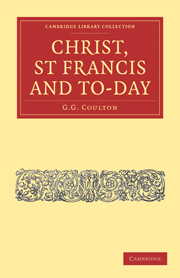Summary
SINCE these lectures originated in detached historico-theological difficulties which presented themselves in a particular field of study, you will not complain, I hope, if they are rather disjointed in detail. But in one way they aim at complete continuity, as keeping certain principles constantly in sight. One of these was stated in my first lecture, where I urged the necessity of religious views which should answer to the quickened sense of reality, and the robuster tone of mind, produced by this war. I tried to show that this necessary reconstruction would be impossible without a certain amount of destruction; that the building of Jerusalem among these dark Satanic mills involves active mental warfare; that we cannot be true to all that was best in the past without hating and trying to destroy all that is worst in the present world. And I pleaded that we should begin by making as clean a sweep as possible, each in his own mind, of all temptations to treat as indisputable those things which separate us from many other thoughtful people, while they leave us still associated with multitudes of the thoughtless. The conviction, for instance, that Christ's words to St Peter definitely promised supremacy over the whole church not only to him personally but to all who claim to be his successors, separates the extreme catholic from whole sections of the thinking world, but not from unthinking thousands within his own communion.
- Type
- Chapter
- Information
- Christ, St Francis and To-day , pp. 23 - 38Publisher: Cambridge University PressPrint publication year: 2010First published in: 1919



